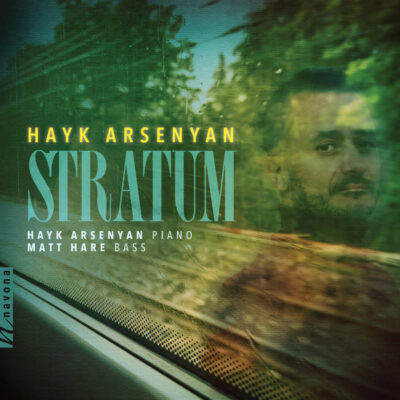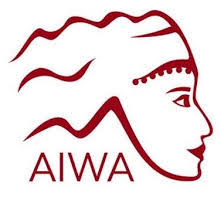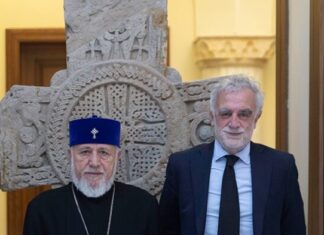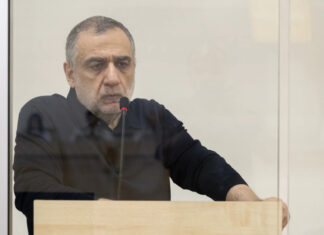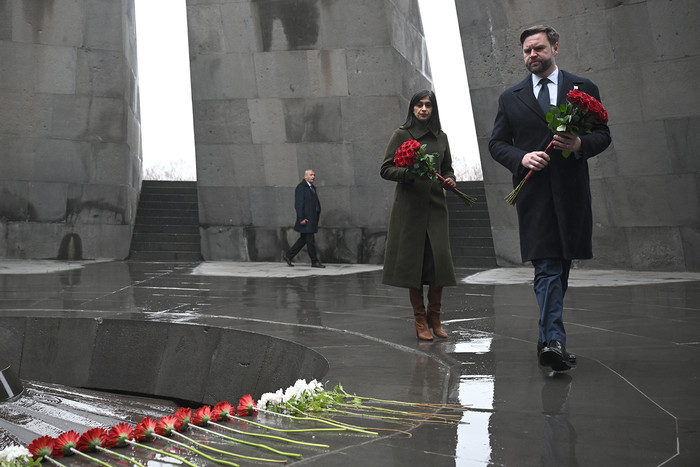Declaring victory may be premature, yet Come Move Mountains, the June 20, 2025 Zoom webinar hosted by the Armenian International Women’s Association (AIWA) with the participation of the Armenian Volunteer Corps (AVC) sent a powerful message that women are no longer relegated to the traditional “Ladies’ Auxiliaries” whose very raison d’être was to provide support and resources to the larger organization of which they were extensions and which often excluded them from leadership and decision-making roles. The webinar evidenced that women today are at the forefront ready to challenge all norms with their innovative ideas.
The Armenian Volunteer Corps, headquartered in Yerevan, was founded in 2000 to foster connection between Armenia and the diaspora by inspiring people to volunteer their time and their service to the homeland. While initially centered on initiatives that contributed to Armenia’s development in business, education, arts and culture, health and other domains, the recent Artsakh Wars and the forced displacement of large numbers of refugees shifted the focus of their activities to more humanitarian endeavors. The ability to adapt to the critical need at hand evidences a flexibility and a creativity crucial to meeting the evolving and the ever-growing needs of the homeland. Even with the gloom hanging over it today, the members are successful in portraying Armenia as a desirable place to move to.
AVC brings together diasporans of all ages and backgrounds, including non-Armenians, to help Armenia thrive. When in the United States, a notoriously “throw-away society,” the elderly are discarded into retirement and convalescent homes, the AVC welcomes them and engages them in useful activities. “I feel I’m contributing to my homeland,” cheers an 85-year-old volunteer from Brazil. “There is a lot of work to be done,” notes Executive director Arina Zohrabian who moved to Armenia in 2002 as a volunteer with the Corps. “What was meant to be a one year of service evolved into a life-changing experience and Armenia became home. Armenia needed me more than America,” avers Arina, who makes it all sound so doable.
The unassuming manner in which the volunteers do the practical work of protecting the needs of children, of pregnant women, of victims of domestic abuse, of violence and of much more, their open-mindedness and their ability to respond to the issues at hand, often with significant impact, is deserving of the highest recognition. Former journalists, artists and other professionals from Switzerland, the United States of America, Australia and many other countries contribute to initiatives that accommodate their various skills, while they immerse in Armenian culture.
The resourcefulness of these women is nothing new. Silence may have been a woman’s lot historically, yet these “marginalized” souls have played a decisive role in rebuilding and in enlightening their communities. The Zabel Yessayans, the Shushanik Kurghinians, the Srpuhi Dussaps, and the scores of other “unsung heroes,” to borrow the participants’ words, have, with their skills and inner strength, inspired generations of women to devote their efforts to the betterment of their societies.
It takes courage to go against the norm. When the world flaunts brutality and glorifies destruction, the AVC volunteers offer succor and support. Their caring for the vulnerable and their compassion evoke for me the great diasporan poet Vahan Tekeyan’s “Prayer on The Threshold of Tomorrow,” where the speaker seeks guidance from the goodness and the wisdom of God to deal with his shaken faith on account of humanity’s suffering, more specifically, the horrendous loss suffered by his people in the 1915 Genocide. The poet pleads for gentleness and kindness to counter the destruction and the devastation caused by brutality:
